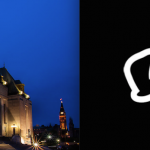Lights, camera … court?
In an historic first this week, cameras will record closing arguments in the landmark B.C. Supreme Court case on Canada’s anti-polygamy laws. Connie Monk reports.
By Connie Monk
In an historic first this week, cameras will record closing arguments in the landmark B.C. Supreme Court case on Canada’s anti-polygamy laws.
Although cameras have been allowed in some cases in court before, this is first time proceedings will be covered live by four pool cameras for major news media. Two cameras will be framed on the judge and the other two on the lawyer speaking. The court agreed to the coverage with a few rules: There is a 10-minute delay in the live coverage and the judge controls a mute switch.
The coverage will also be streamed online.
CBC Vancouver executive producer Wayne Williams says it’s a small but significant step forward because all it takes is one lawyer to object and it isn’t allowed.
This access is something the media had been working on for years.
“We chose this particular case because we stood a good chance to get it,” said Williams. “Then [B.C.] Attorney-General Mike de Jong was willing to try … we thought we had the opportunity to get in and show the court we could manage it and it could be accomplished with minimum disruption or intrusion.”
In addition to legal costs, about $20,000 was spent on wiring the courtroom and staff time. The good news is the wiring stays in place, meaning more potential for live coverage of other cases.
Daniel Henry is one of CBC’s main lawyers who worked on obtaining the media access. “The point about court openness, though, is that it benefits all litigants equally, and society as a whole," he said. “Our position has simply been if it's public, it's public, no matter how the information gets to the public.
“We hope it’s successful and we will get even more access the next time.”
Connie Monk is program head, broadcast journalism, and news director, Evolution 107.9 FM, in the roadcast and media communications department of the British Columbia Institute of Technology.




